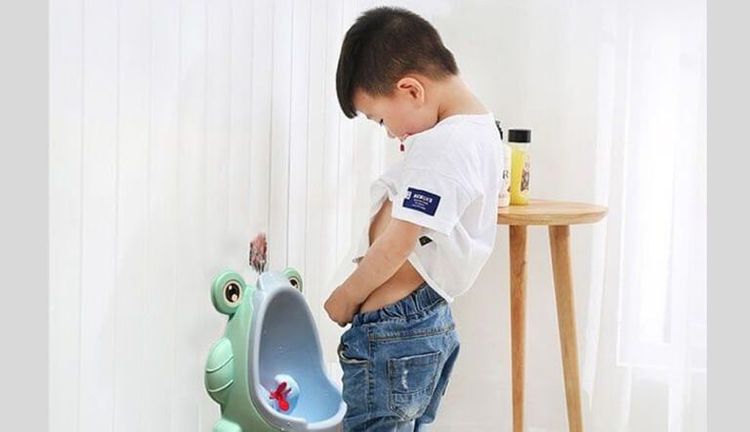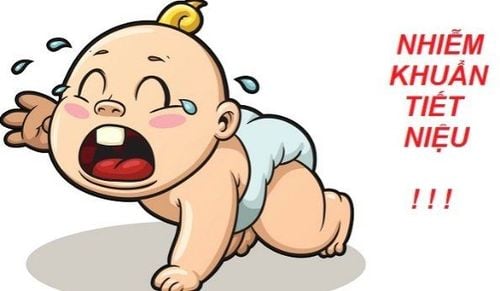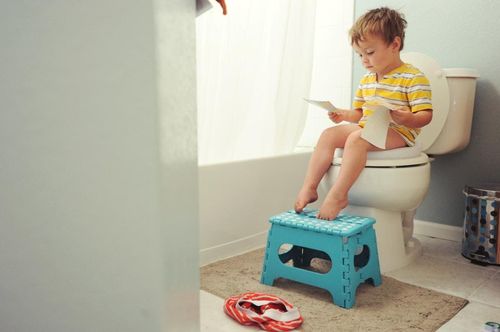Acute urinary retention is considered a urological emergency in adults and is often related to benign prostatic hyperplasia. However, urinary retention in children is relatively rare.
1. What Does It Mean When a Child Cannot Urinate?
The urinary system is responsible for waste excretion in the body and includes two kidneys, two ureters, one bladder, and one urethra. The kidneys filter blood to eliminate waste products and produce urine, which flows through the ureters into the bladder. A muscle called the sphincter contracts to hold urine in the bladder and relaxes when urination occurs. The urine exits the body through the urethra.
Urinary retention occurs when the body cannot fully or partially empty the bladder voluntarily. Instead of all urine being excreted, some remains in the bladder, or in severe cases, urination is completely blocked. In children, difficulty urinating may be either a short-term (acute) or long-term (chronic) problem. It can occur suddenly (acute) or worsen gradually over time (chronic).
If urine remains in the bladder for a prolonged period, it may lead to urinary incontinence and increase the risk of a urinary tract infection (UTI). In severe cases, urine may begin to reflux back toward the kidneys, causing long-term kidney damage.
2. What Causes Urinary Retention in Children?
Several causes can result in difficulty urinating in children, including:
- Structural abnormalities of the urethra, such as narrowing or blockage.
- Structural issues in the bladder neck, sometimes following treatment for congenital conditions like posterior urethral valves or bladder diverticula.
- Weak bladder muscles or pelvic floor muscles.
- Nerve transmission issues between the bladder and the brain.
- Side effects of certain medications, including anesthesia.
- Prior urological surgery.
- Constipation, where stool presses on the bladder or urethra, obstructing urine flow.

3. How Can Parents Identify Urinary Retention in Children?
Acute urinary retention occurs suddenly and causes severe pain and abdominal distension.
However, children with chronic urinary retention may show no obvious symptoms. In these cases, symptoms may include:
- Urinary incontinence and recurrent UTIs.
- An increased urge to urinate more frequently.
- Difficulty initiating urination and producing a weak or intermittent urine stream.
- Persistent discomfort or mild pain in the lower abdomen.
4. How Is Urinary Retention Diagnosed in Children?
The doctor will begin by recording when the urinary difficulty started and checking for signs of a distended bladder or constipation. To confirm the diagnosis, the following methods may be used: Bladder and kidney ultrasound to detect urinary retention.
- Bladder function tests to evaluate the structure and function of the urinary system.
- CT scans to identify structural abnormalities in the bladder.
- Tests for urinary tract infections.
Cystoscopy, a procedure to visualize the inside of the bladder using a cystoscope.

5. What to Do If a Child Has Urinary Retention?
Acute urinary retention requires immediate intervention to relieve bladder pressure. Treatment involves:
- Catheterization: A catheter is inserted into the urethra to drain urine into an external collection bag.
- If the urethra is obstructed, preventing catheter insertion, the doctor may insert a catheter directly into the bladder through the suprapubic area (above the pubic bone).
Once the bladder is drained, further tests are conducted to identify the underlying cause.
Chronic urinary retention does not typically require emergency treatment but must be evaluated to reduce the risk of infections and kidney damage. Strategies include: Bladder training exercises: These help the child understand the nerve signals between the bladder and brain and strengthen the sphincter muscles to improve urination.
- If urinary retention is caused by medications, the doctor may switch to an alternative drug or adjust the dosage.
- Medications may be prescribed to relax the bladder and pelvic floor muscles, facilitating easier urination.
If urinary retention is caused by structural issues, surgical intervention may be necessary. For instance:
- Urethral narrowing: A stent (a small plastic tube) may be inserted to keep the urethra open.
- Urethral obstruction: Surgery may be required to address the blockage.
Urinary retention in children is a relatively rare but serious condition. Instead of worrying about "what to do if a child cannot urinate," parents should remain calm and promptly take the child to a hospital for bladder decompression and diagnosis. Children will undergo evaluations of the urinary tract's structure and function, along with imaging tests, to determine the underlying cause and prevent complications.
Please dial HOTLINE for more information or register for an appointment HERE. Download MyVinmec app to make appointments faster and to manage your bookings easily.













